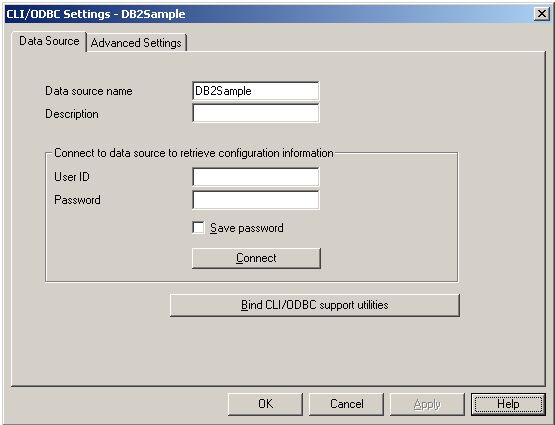Synametrics Technologies
Revolving around the core of technology
Document information
| Document ID: | 742 |
|---|---|
| Subject: | I don't see any tables in the catalog window when connecting to DB2 |
| Creation date: | 7/29/09 9:37 AM |
| Last modified on: | 12/12/18 11:01 AM |
Document Details
DB2's ODBC drivers require some custom packages installed on the
server. This is typically done by clicking the "Bind CLI/ODBC support
utilities" in the ODBC driver setup. Refer to the image on the right.
You will need administrative privileges in order to bind the driver.
This step is required for each database that you need to connect
to. In a network environment, if you are using multiple clients that
run on different operating systems or are at different versions or
service levels of DB2, you must bind the utilities once for each
operating system and DB2-version combination.

Binding a utility creates a package, which is an object that includes all of the information that is needed to process specific SQL statements from a single source file.
The bind files are grouped together in different .lst files in the bnd directory, under the installation directory. Each file is specific to a server.
What if I am using the drivers that ships with WinSQL?
Similar steps are required by this driver. However, you don't have to
click any button. Necessary packages are automatically installed when
you first connect to the database and the user has enough privileges.
What happens in WinSQL when these packages are missing?
WinSQL
uses the ODBC API to fetch information about different objects in the
database. When these packages are missing you won't be able to see any
tables, views or stored procedures in WinSQL's catalog tab.
To find out which packages are missing, run WinSQL in debug mode. This is done by passing -g as a command line argument to WinSQL.exe. In debug mode WinSQL will generate a debug.log file which will contain the names of all missing packages. Click here for further information about the debug mode.
Add a comment to this document
Do you have a helpful tip related to this document that you'd like to share with other users?
